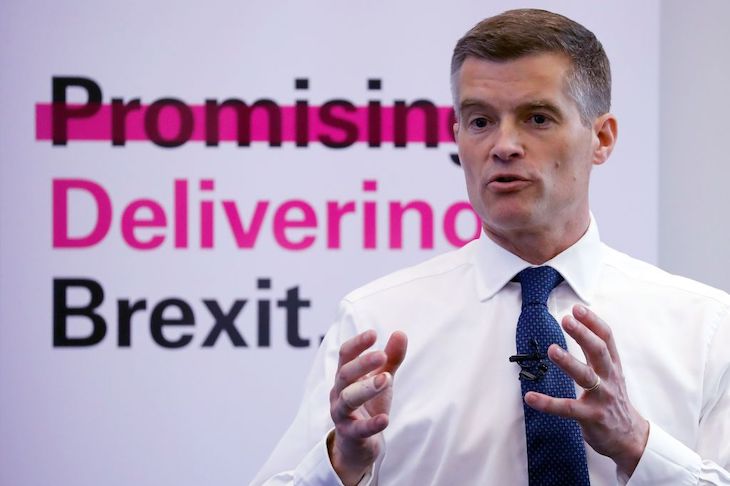One of the major problems facing the less well-known Tory leadership contenders is this: how do you stand out to Conservative members and MPs when there are so many other candidates? With ten contenders still fighting to be prime minister, even Cabinet members seeking to boost their publicity have been forced to rely on gimmicks, whether it’s Rory Stewart wandering around Kew Gardens pretending to shoot hand-held videos, or Matt Hancock handing out free waffles and phone chargers at his campaign launch.
Former chief whip and immigration minister Mark Harper meanwhile decided to opt for honesty at the start of his campaign this morning. In an event entitled ‘Ask Me Anything’, Harper said he would open himself up to the floor, promising to ‘actually answer’ the questions which were put to him.
As the least familiar candidate – and when several of his colleagues have come under fire for their own shaky relationship with the truth – it was not the worst strategy. It gave Harper a clear platform to speak about his background, his Brexit strategy and his vision for the country.
Harper tried to use his low profile as an asset. He said his lack of public persona meant that he had done a good job as chief whip when he served under David Cameron and that the country was looking for the ‘fresh approach’ he provided. He sought to distance himself from his leadership rivals, who he said all shared responsibility for the current Brexit impasse because:
‘Everyone else in this race has at same point over the last three years been sat around the cabinet table, and has participated in decisions that have led to not leaving the European Union three years after that referendum.’
Harper hit out at Boris Johnson’s inability to give a clear answer on the topic of drugs and the revelations that Michael Gove had taken cocaine while he was a journalist at the Times. He said that all the ‘candidates in this race owe the public clear answers’ about drugs. By comparison, he said he had never taken illegal substances and didn’t ‘get invited to those sorts of parties’ where they were taken.
On Brexit, Harper said that although he was ‘prepared and comfortable’ for Britain to leave without a deal, he would rather ‘bust a gut’ renegotiating the withdrawal agreement first. It was only if the negotiations were unsuccessful that he would attempt a no-deal Brexit. He also said that he believed leaving on the 31st October was ‘not credible’, as it did not leave enough time to renegotiate his deal and get it through parliament, so he would likely ask the European Union for an extension.
The downside of Harper’s ‘Ask Me Anything’ approach was that it led to some serious, and less-than-serious questions from the floor. Harper was grilled about his part in the ‘hostile environment’ when immigration minister and his decision to deploy the infamous ‘Go Home’ vans which toured Britain (Harper later had to resign in 2014 because he accidentally employed an illegal immigrant as a cleaner).
The former chief whip was also asked if he was only in the race because he wanted a Cabinet position. And while he batted away the criticism, saying there were ‘easier ways of getting into Cabinet’ than running, he also didn’t rule out becoming a minister in the next government. On the less serious front, Harper was asked by the Mirror’s Oliver Milne who would win in a fight between a bear and a lion (Harper chose the lion, as it was the symbol of Britain).
Overall, it was a confident and assured performance from the former minister and whip, that established his credentials as a serious candidate. But in a crowded leadership field, with several candidates having more impressive backstories and more experience in government, it was probably not quite the inspiring performance Harper needed to raise his profile and become a major player in the eyes of MPs and Tory members.







Comments